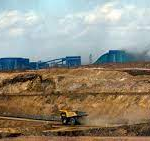 Rio Tinto CEO Jakob Stausholm met with Mongolia’s Prime Minister Luvsannamsrain Oyun-Erdene this week, with the aim of resolving the issues that still threaten the future of the vast Oyu Tolgoi copper and gold mine.
Rio Tinto CEO Jakob Stausholm met with Mongolia’s Prime Minister Luvsannamsrain Oyun-Erdene this week, with the aim of resolving the issues that still threaten the future of the vast Oyu Tolgoi copper and gold mine.
The ongoing expansion of the project in the Gobi Desert has been plagued by delays and cost overruns, which have sparked the anger of the Mongolian government to the point of threatening to revoke the 2009 investment agreement that underpins the mine’s development.
Relations between Rio Tinto and the Central Asian nation hit a new low in August, when an independent review rejected the mining giant’s explanation for project delays and soaring costs.
Mongolia’s position is that Rio should cover excess costs, while accrued debts on Ulaanbaatar’s 34% share of the project should be completely removed.
Rio is prepared to make concessions to the Mongolian government to complete the troubled project, including reducing interest rates on loans to the nation to finance its share of the construction costs.
A final estimate for the development of the new level of the mine, announced in December 2020, pegged the cost of Oyu Tolgoi’s underground section at $6.75 billion, about $1.4 billion more than the original 2015 estimate.
First production, originally scheduled for late 2020, was rescheduled for October 2022, and Rio blamed unfavorable geological conditions as the main cause for the revised cost and schedule. The independent report released in August suggested that it was rather caused by the miner’s mismanagement.
Financial regulators in the U.K. and U.S. kicked off their investigations into Rio’s revelations of delays and inflated costs, which reached a new high two months later.
.gif) Loading
Loading

